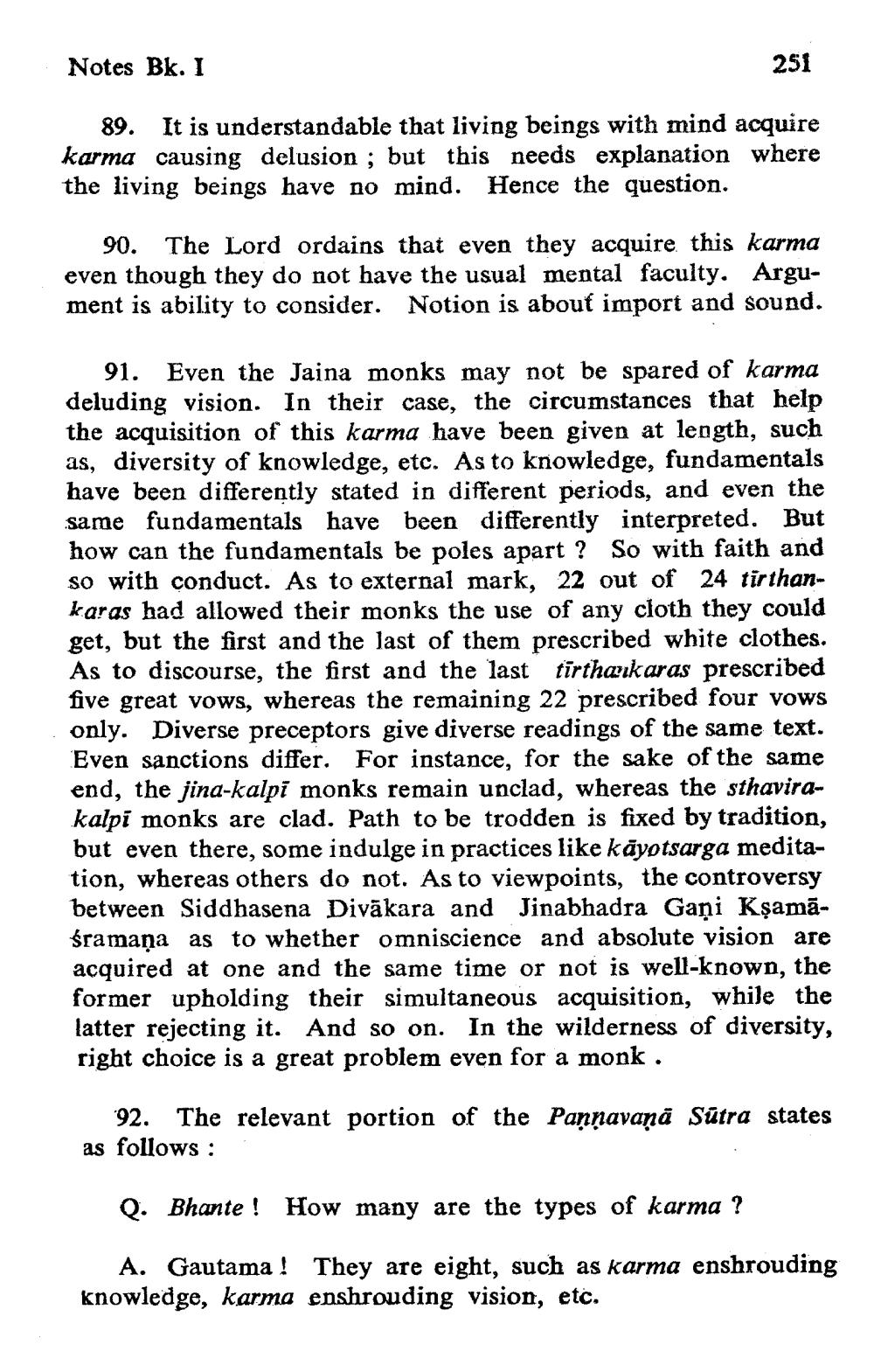________________
Notes Bk. I
251
89. It is understandable that living beings with mind acquire karma causing delusion ; but this needs explanation where the living beings have no mind. Hence the question.
90. The Lord ordains that even they acquire this karma even though they do not have the usual mental faculty. Argument is ability to consider. Notion is about import and sound.
91. Even the Jaina monks may not be spared of karma deluding vision. In their case, the circumstances that help the acquisition of this karma have been given at length, such as, diversity of knowledge, etc. As to knowledge, fundamentals have been differently stated in different periods, and even the same fundamentals have been differently interpreted. But how can the fundamentals be poles apart ? So with faith and so with conduct. As to external mark, 22 out of 24 tirthankaras had allowed their monks the use of any cloth they could get, but the first and the last of them prescribed white clothes. As to discourse, the first and the last tīrthankaras prescribed five great vows, whereas the remaining 22 prescribed four vows only. Diverse preceptors give diverse readings of the same text. Even sanctions differ. For instance, for the sake of the same end, the jina-kalpi monks remain unclad, whereas the sthavirakalpi monks are clad. Path to be trodden is fixed by tradition, but even there, some indulge in practices like kāyotsarga meditation, whereas others do not. As to viewpoints, the controversy between Siddhasena Divākara and Jinabhadra Gani Kşamāśramaņa as to whether omniscience and absolute vision are acquired at one and the same time or not is well-known, the former upholding their simultaneous acquisition, while the latter rejecting it. And so on. In the wilderness of diversity, right choice is a great problem even for a monk.
92. The relevant portion of the Pannavaņā Sūtra states as follows:
Q. Bhante ! How many are the types of karma ?
A. Gautama ! They are eight, such as karma enshrouding knowledge, karma enshrouding vision, etc.




